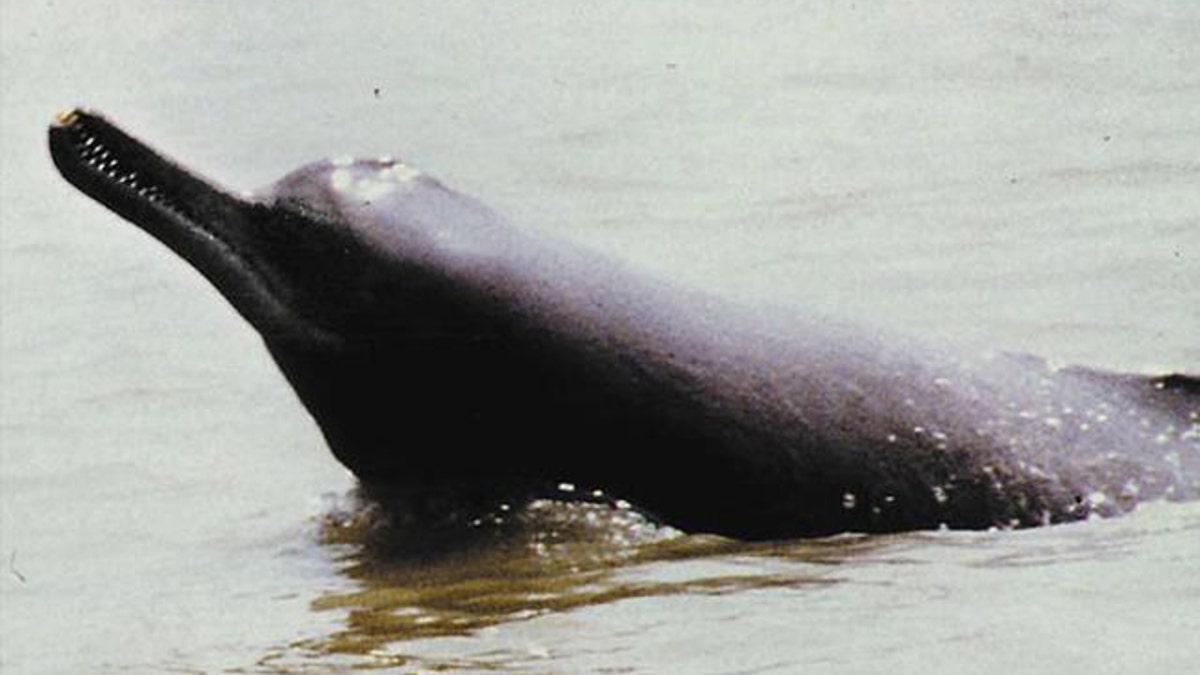
(ap)
The dusty, dry confines of Peru’s Pisco-Ica desert, just south of Lima, seems like an odd place to find the remains of dolphins, let alone ancient dolphins. And yet that is exactly where paleontologists recently discovered the fossils of a previously unknown species of the mammal.
In a study published in the Journal Vertebrate Paleontology, the scientists note that the three well-preserved dolphin skeletons, some 16 million years old, not only belong to a new species but are related to endangered “river dolphins living in the Indus and Ganges rivers in India today.”
While freshwater river dolphins are common in the Amazon, as well as China’s Yangtze river, the paleontologists say that this long-extinct species of river mammal is not related to their fellow South American brethren.
"They're three of a kind," John Gatesy, an associate professor of biology at University of California, Riverside, told LiveScience. "Three independent lineages."
Researchers have long tried to figure out where river dolphins fit into the family tree of other aquatic mammals like whales and porpoises, and they say that this discovery is helping scientists piece together part of the puzzle.
"It's helping flesh out this pretty poorly known extinct family that helps tie this oddball living species into the evolutionary tree," said Jonathan Geisler, an associate professor of anatomy at the New York Institute of Technology.
Named after the ancient Huari culture of the south-central Andes and coastal area of Peru, the newly discovered species is called Huaridelphis raymondii. The species name is meant to honor Italian scientist Antonio Raimondi, who found fossils of whales in Peru in the 19th century.
The area where the fossils were discovered has become a hotbed for paleontological research thanks to its wealth of fossilized remains.
“Considering the richness of the fossil localities recently discovered, other new extinct dolphins from the same geological age will certainly soon be found and studied,” Giovanni Bianucci, of the Universitá degli Studi di Pisa and an author on the study, said in a statement, according to Peru This Week.
Follow us on twitter.com/foxnewslatino
Like us at facebook.com/foxnewslatino
